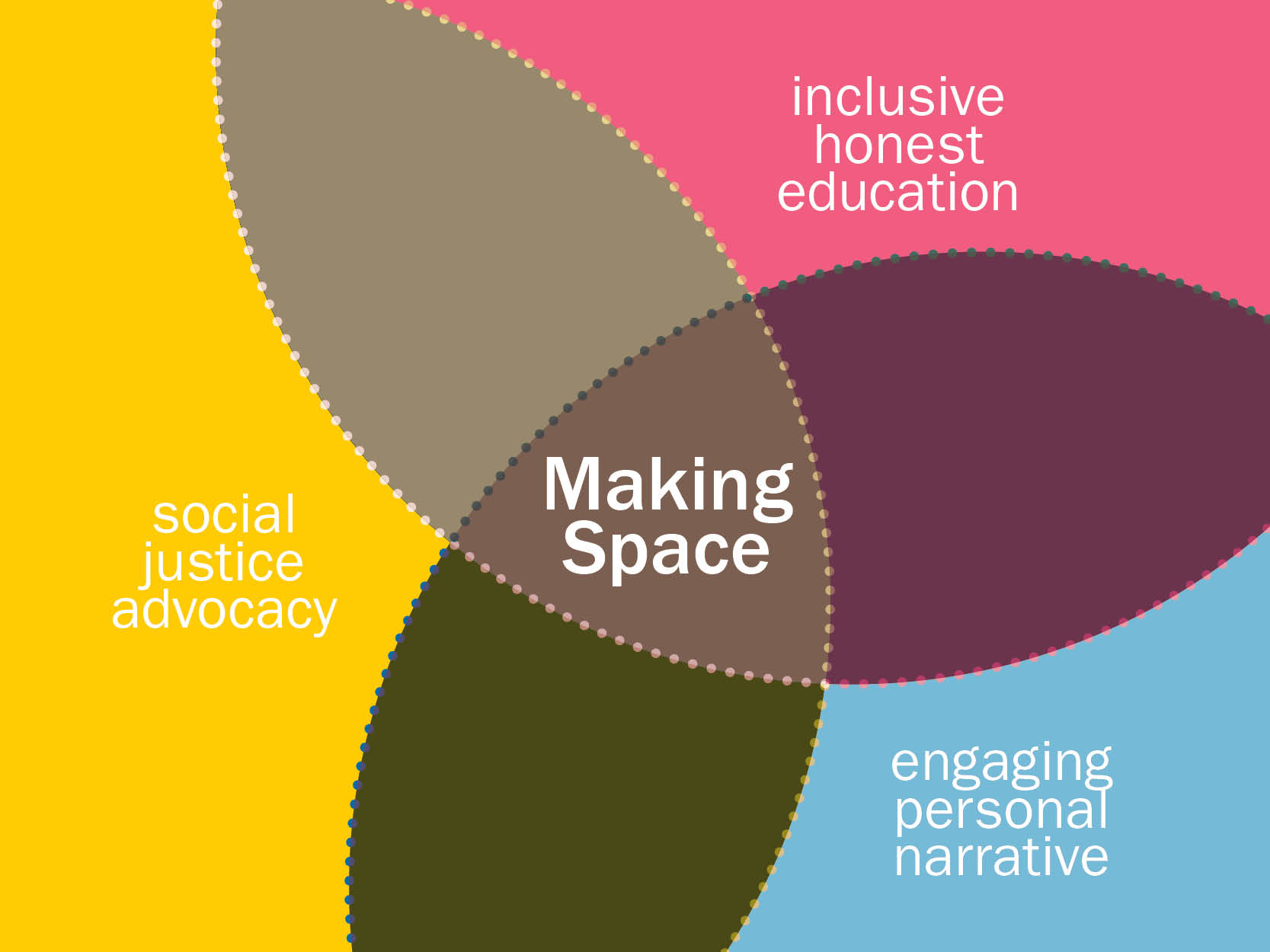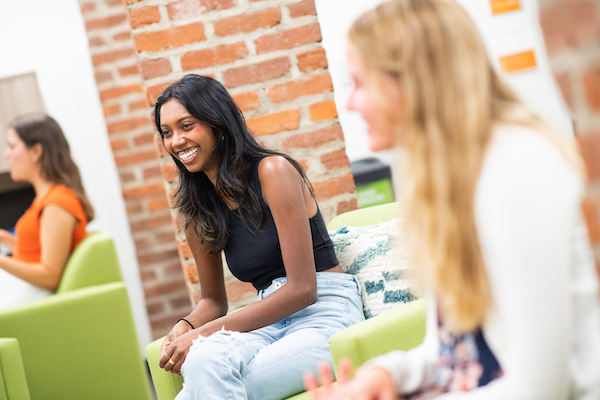
In October, the Women’s Center’s Body Positivity team hosted an event in coordination with the Multicultural Student Center (MSS) featuring LA-based activist Gloria Lucas, founder of Nalgona Positivity Pride (NPP), an in-community eating disorders and body positive organization dedicated to creating visibility and resources for Black, Indigenous, communities of color. As a student of color, I went to the event with specific lived experiences in mind: my younger sister’s struggle with an eating disorder had changed the dynamics of our South Asian household, reshaping our understanding of food, eating, and mental health. I was eager to learn more.
Lucas’s presentation was eye-opening. She gave a thorough overview of the history of colonialism, showing how food has always been a tool in colonization. The way we think about our bodies here in the U.S.—and subsequently the way we form our body images, eating habits, and entire lifestyles—revolves around a standard of whiteness and thinness, according to Lucas.
So how can we begin to heal? Lucas reminds us to start with ourselves.
“The phrase that ‘you are what you eat,’ came from the belief that food, and the superiority of certain foods, shaped the colonial body,” Lucas explained. Destroying native food sources, forcing Indigenous people onto reservations, and suppressing Indigenous spiritual healing practices led to long-lasting generational trauma linked to body image and food.
Colonial ideologies have harmed Black communities as well, Lucas noted. Black bodies in Western culture and popular media have been fetishized, fat-shamed, and discriminated against. The hypersexualization of Black bodies and the idea of “superhuman” strength ascribed to them justified colonial sexual violence and enslaved labor. Lucas described how “fatphobia” stems from anti-Blackness and has always been a way to reinforce white supremacy.

Some students gathered in the Multicultural Student Center for a livestream of Gloria Lucas' talk while others attended online from their own spaces.
“Fatphobia is a way of policing and shaming Black and Indigenous people and has spilled over into fat-shaming people of color on a broad scale, leading to eating disorders,” says Patrick Cloud, a 2nd year intern for the Body Positivity team. “The details of what Gloria Lucas presented in the talk on colonialism were shocking and appalling...both men and women are feeling the repercussions of that system today. There’s just no way to fit that white standard.”
The Lucas event came at a critical time, when the pandemic, presidential election, and Black Lives Matter movement have stirred a national reckoning with racial injustice and the treatment of bodies of color, both medically and socially. Lucas argues that categories of a “healthy” physicality have undeniably been constructed around a Western medical schema, an eye-opening concept for students who participated in her presentation. “It’s so dangerous to think that nurses will have a bias or won’t want to care for someone who’s higher weight,” senior Body Positivity intern Julia Paraiso adds. “The way we interact with people, whether or not someone gets a raise, the kind of medical care someone receives—historically, there has been a vendetta against higher weight people.”
Trust yourself. Honor your body when there are changes. Understand that healing is a lifelong commitment.
I left Lucas’ talk thinking about the prevalence of diet culture, thinness, and “Influencer” bodies in our society, affecting our physical and mental health, especially for Black, Indigenous, and communities of color. The Western medical model of “health,” and the social culture that arose from it, is not new but rather generational and institutional. As a result, I think, the path to healing must go beyond the necessary but sometimes simplified rhetoric of self-love, self-care, and body positivity. It requires inclusive and honest education, engaging, personal narrative, and social justice advocacy in equal parts. As Cloud says, “There’s never a wrong time to be intersectional.”
So how can we begin to heal ourselves, intersectionally? Lucas reminds us to start with ourselves. Trust yourself. Honor your body when there are changes. Validate your harm reduction practices, whether they be cultural, religious, or spiritual. And most importantly, understand that healing is a lifelong commitment.
I think back to my own family, and how much we have grown emotionally since my sister was 12 and struggling with disordered eating. She’s now 16, and I hear her laugh at the dinner table over FaceTime as I work on this piece. Our mom is telling us the cultural significance and health benefits of bittermelon. We’re not so sure, but we’ll give it a try. Seems like a safe, loving, intentional place to start.

